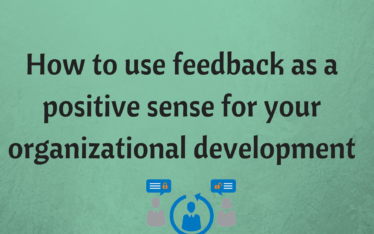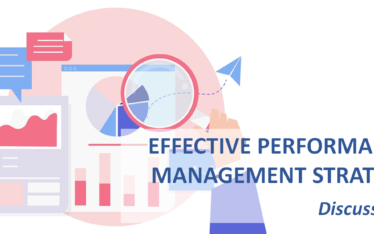How to use feedback as a positive sense for your organizational development

Executing a culture of criticism starting with no outside help at an organization is no straightforward assignment, particularly on the off chance that it hasn’t verifiably been a piece of the organization’s esteems. Too often, supervisors and HR groups see criticism as an approach to study partners execution and to highlight where they require change – which is precisely the wrong approach to approach it.
Regardless of how well meaning your criticism, without first gaining the benefit to utilize that level of sincerity with a colleague, your information won’t be gotten emphatically. The way you acquire that benefit is by building a domain where all colleagues possess that they are in charge of each other’s prosperity. With that learning as the establishment for criticism, all partners realize that evaluates are offered out of administering to their own and expert achievement.
This point was driven home when my cultivate child, Daniel, first came to me at 12 years of age. By that point, he had been in more than 30 cultivate homes, which left him suspicious and shut off to any parental direction. I needed such a great amount to bond with him, to tell him he could believe me, however at whatever point I took a stab at talking with him, I was met with critical outrage and resistance. At that point one day, I exited work feeling frustrated with myself for not knowing how to settle a misstep I’d made. I got back home and Daniel was playing computer games. Without pondering it, I stated, “You comprehend what, I truly botched today.” He quit playing computer games, taken a gander at me and stated, “I spoil in some cases, as well.” It might appear to be little, yet for us, it was a gigantic leap forward. It took me being defenseless and giving my own particular monitor a chance to down for him to consider me to be human and believe me enough to open up. It changed our relationship since it made the possibility for us to assemble mental security in a way he hadn’t felt some time recently.
Trust and mental wellbeing reposition criticism in a valuable light. Without it, the recipient will just hear feedback. Before racing to set up an input framework, however, three “enlightenments” need to occur inside your groups.
Setting the Foundation
I call them “enlightenments” since they’re really that transformative — both for the individual and the association. They guarantee a strong domain where the collector feels safe and comprehends the motivation behind the particular input. Once these arousals happen, HR administrators and supervisors can find a way to spread this culture all through an association.
Arousing #1: Giving criticism is not a privilege
There is no title on the planet that consequently gives you consent to give spontaneous input; it’s a benefit you need to gain. A title doesn’t consequently mean you have an association with somebody, yet you do require a relationship to give and get input successfully. Without it, your immediate reports may sit and tune in, however they are probably not going to handle it, not to mention make a move. So what do you do to ensure the criticism resounds?
HR groups and administrators can help by building a feeling of mental well-being that engages everybody to give (and get) input deferentially and successfully. Instruct supervisors to set aside the opportunity to consider and clarify how their input is in an administration of the beneficiary’s prosperity. Giving criticism that terrains effectively, regardless of whether it’s close to home or expert, put your representatives on the most direct track to achieve their objectives and empowers your association to be more gainful and productive.
Arousing #2: Feedback is not quite the same as execution audits
At the point when an input is taken care of well, execution audits are affirmations of the advance made on responsibilities set consistently, and they highlight where more work is required. When an execution survey comes around, nothing said ought to be brand new information to your representatives, yet rather an approval of the criticism gotten over the execution time frame.
Arousing #3: Feedback is a blessing — however, it’s up to the beneficiary regardless of whether to acknowledge it.
Beneficiaries of criticism don’t need to concur with or make a move on anything they listen. Input is only data for them to consider. The beneficiary gets the chance to pick which bit of criticism really serves them and their needs. On the off chance that the input is given because of the collector genuinely, tending to how they can make individual progress instead of where they are not meeting desired, the recipient will probably make a move. Furthermore, it’s just by the activities of people that a virtual cycle of criticism will turn into an essential piece of your organization’s way of life.




